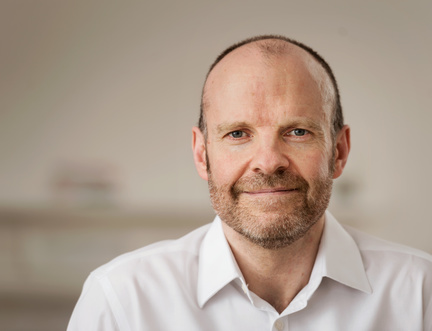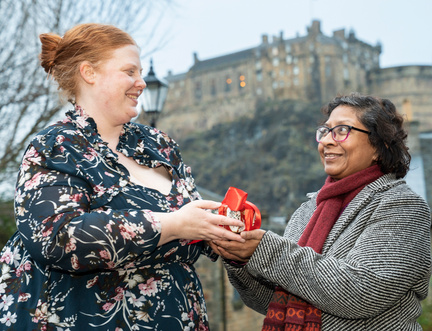More articles Tuesday 25 August 2020 1:25pm
"We need to treat connectivity as a water supply": discussing the digital divide at the Book Festival

“We need to treat connectivity as a water supply, that it’s a given and a right” said Iain MacRitchie in conversation with Richard Thanki in an event chaired by Marjorie Lofti Gill at the Edinburgh International Book Festival Online this morning.
MacRitchie is CEO of MCR Pathways, which works with 2500 disadvantaged young people across Scotland. He said “Those that are disadvantaged, their voices are not heard” and they are being left behind in the digital divide that’s been exacerbated by lockdown and the Covid-19 pandemic.
Richard Thanki is co-founder of charity Jangala that delivered WiFi to the ‘Calais Jungle’ as well as a host of other remote temporary communities formed of displaced refugees and asylum seekers. In these places he notes, “The queues to use the 5 telephones were always 10 times longer than the queues for food. When we’re displaced it becomes more important than ever to be connected and (we are) less accessible than ever”.
When his prototype ‘Big Box’ had been installed, offering a stable internet up to 500 people, at first people immediately made phone calls and sent messages to their loved ones. But afterwards they were sharing videos of the football prodigy from their hometown and the music that they love with one another, “it’s a whole web of things that make us who we are and they don‘t disappear because you’re a refugee.”
Gill, from her experience as co-founder of Open Book, a charity that offers literature in the form of reading groups for marginalised groups to connect with each another, found that part of digital poverty is digital illiteracy. Handing out free devices doesn’t necessarily solve the problem, “Everyone’s situation is different, and everyone’s situation is constantly changing” and that there wasn’t a one size fits all answer to solving digital poverty.
MacRitchie agreed and recounted from his research during lockdown from the young people he works with that many struggled with the schoolwork offered because they didn’t understand it without the human connection offered from a teacher or mentor, a quarter had additional responsibilities as young carers that prevented them doing schoolwork, and 20% didn’t have space to work. The most apparent finding was that the devices and digital connections were most important as tools to connect with their peers to improve their mental health.
Thanki had found similar results in his work, “the question of mental health in refugee and asylum seekers is critical” as they are already under extreme stress and are dislocated from their support networks, but found the moods of the communities improved and they were empowered by being given the tools and support to set up their own internet connections.
Gill, MacRitchie and Thanki agreed that huge improvements needed to be made to make stable connectivity more accessible all around the world, and to offer more support to conquer digital illiteracy where needed. Thanki argued that big change has always started with local projects and that fundamentally “locality is at the heart of the internet” helping us connect with each other. In imagining a future of digital abundance based on locality, MacRitchie said it should centre on the choice for people to be able to use or not use digital devices based on what they find most helpful. Gill added there should be “a basket of opportunities to be able to have access to their support networks” as and when they see fit.
--
This event was supported by players of People’s Postcode Lottery and presented as part of the Book Festival’s Citizen programme. For more about our year-round work in communities across Scotland, visit ontheroad.edbookfest.co.uk
You can watch this event again in full on our website: https://www.edbookfest.co.uk/the-festival/whats-on/iain-macritchie-rich-thanki-healing-the-digital-divide/player
- 2025 Festival:
- 9-24 August
Latest News
 Communities Programme participants celebrate success of 2024
Communities Programme participants celebrate success of 2024



